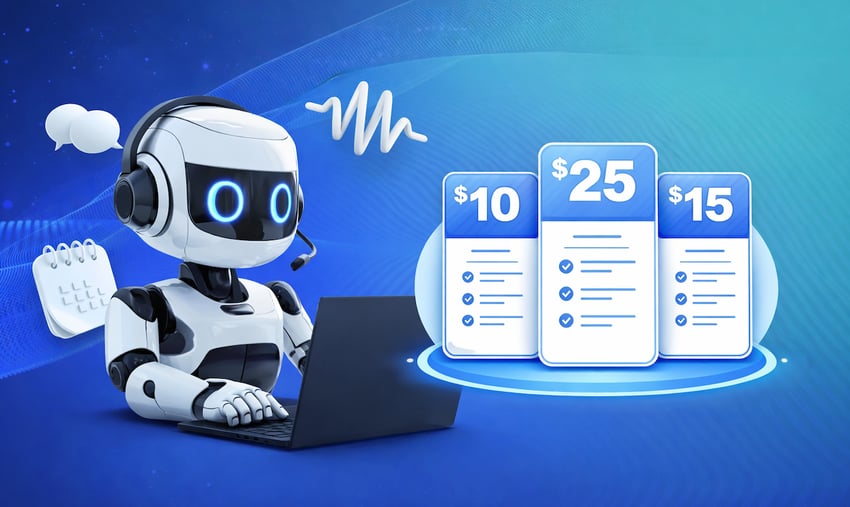Today, there are more customer service channels than ever, creating a growing challenge for businesses that want to meet their customers where they’re most active.
Small businesses often have complex communication demands, especially communication-centric businesses like contact centers, making customer support solutions imperative.
Various customer service solutions can help your support team, decrease response times, and allow your business to improve support agent performance overall.
Here, we’ll discuss different customer support tools to help you determine which is right for your business and when you should adopt a new solution.
Evaluating contact centers? Get the buyer’s guide.
This guide reveals the five pillars of a modern platform, key questions to ask, and red flags to avoid.
Popular Customer Service Solutions Today
The three main categories of customer service management solutions — traditional communication channels, digital channels, and emerging solutions — can each improve the customer experience in different ways.
Traditional channels
Traditional customer service channels include phone and email support.
Phone support is still a popular communication channel for customers and businesses. It allows for real-time interaction and the handling of complex customer issues. Interactive voice response (IVR) systems can automate some aspects of phone support, including answering basic customer queries and promptly routing callers to relevant agents.

IVR systems can benefit businesses of all sizes, but they’re particularly important for call centers that receive high volumes of incoming calls.
Email support is the other traditional customer support channel. It allows for asynchronous communication, so customers can reach out at their convenience, even when the business is closed. Support agents are given time to research customer issues and address them thoroughly.

Many businesses rely on help desk software solutions like Freshdesk or Zendesk to improve the customer email experience. These software solutions use ticketing systems to ensure all emails are promptly answered and customer concerns are addressed.
Digital channels
Digital channels have become increasingly important as customer support platforms, especially following the rise of social media. To deliver an excellent customer service experience, you need to consider digital and social channels.
Live chat software provides real-time interaction through a website or mobile app chat windows. It’s ideal for providing easy answers to quick questions or offering technical assistance. Some live chat software includes AI-powered chatbot functionality to answer basic questions or troubleshoot common issues and direct more complex customer needs to live support agents.
Social media support allows businesses to address customer inquiries directly on social media platforms for real-time reputation management. This may include responding to public comments on posts and private messages users send across platforms like Facebook, Instagram, and X.
Self-service options empower customers to find answers independently through online knowledge bases, FAQs, and online communities. Customers often prefer self-service options, if available, for basic support needs.
Related: How to Build a Successful Social Media Customer Service Program
Emerging solutions
Emerging solutions are becoming more prevalent as customer support platforms. Many call center tools are now adding these CX functionalities.:
Video chat can offer a more personal approach for complex issues. Virtual meeting apps are well-suited for product demonstrations and stakeholder presentations.
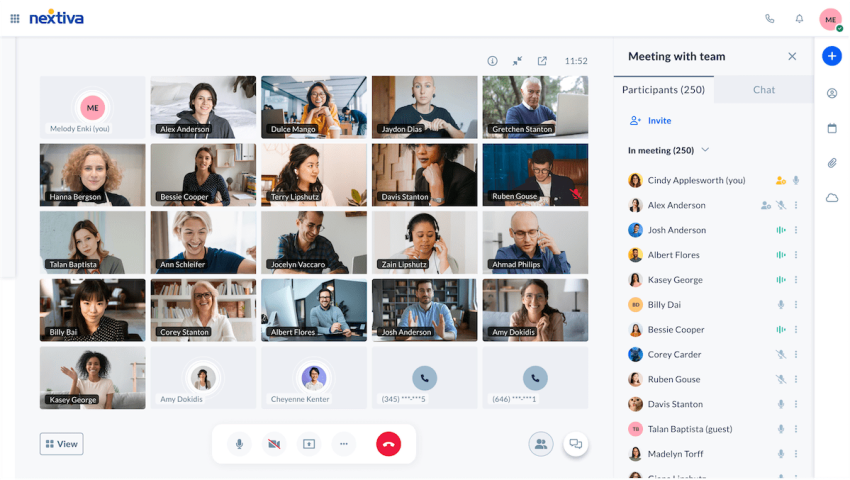
Co-browsing allows a support agent and customer to browse the customer’s web session together to diagnose and resolve technical difficulties.
Messaging apps are popular with businesses, allowing them to respond to customer communications directly on tools like WhatsApp or Facebook Messenger.
What to Look for in a Customer Service Solution
When choosing customer service solutions, you should consider your business needs and the capabilities of the specific platforms. Many businesses and contact centers are choosing solutions that offer all-in-one CS platforms for ease of use, but there are key features that you should consider.
Omnichannel support
Customers today expect seamless interactions across all channels, including phone, email, live chat, and social media.
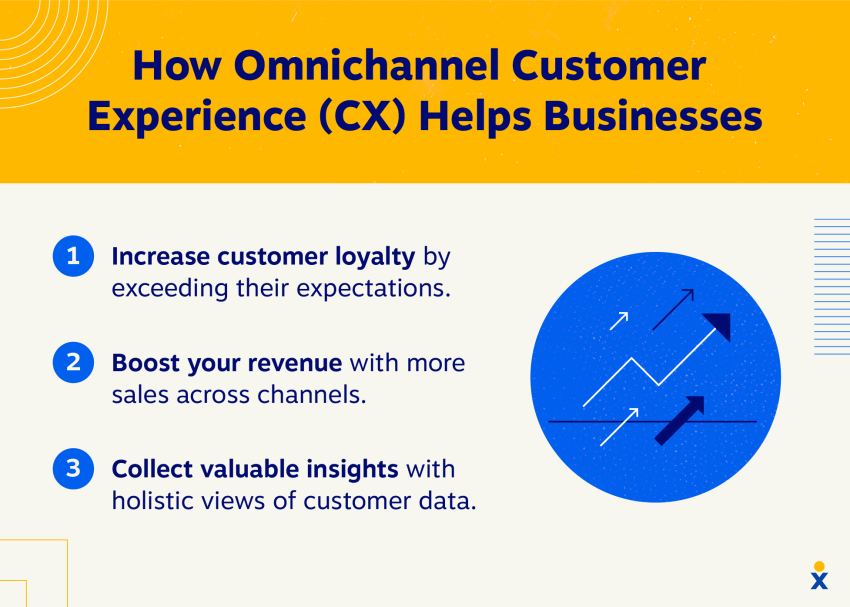
Suppose they reach out on social media and follow up with a phone call. In that case, you want support agents to be able to trace the entire history and respond accordingly, especially since customer service statistics show that more customers than ever expect personalized support.
Look for the following features to support omnichannel contact center functionality:
- Unified platform: Your CS solution should integrate all important communication channels into a single platform to create a smooth transition between channels for the customer and the customer service team.
- Self-service options: Knowledge bases and FAQs can enable customer success and empowerment, increasing retention while reducing the number of messages and calls your agents have to navigate.
Agent efficiency
The more efficient your agents are, the better your customer care will be. Customer service software should include features that can improve support agent efficiency and performance in multiple ways, including:
- Automated workflows: Repetitive tasks like password resets or appointment scheduling should be automated to free up agent time for complex issues and improve response times.
- Knowledge management: A robust knowledge base with easy access to relevant articles, product information, and troubleshooting guides empowers agents to solve problems quickly.
- Screen pop-ups: When a contact begins, screen pop-ups automatically display customer data, including purchase history and past interactions. This allows agents to review past exchanges quickly and deliver personalized support.
- Call recording and quality monitoring: You can evaluate agent performance to identify areas for improvement and use call recordings for coaching purposes.

Performance management and analytics
Performance management and analytics help you understand how your customers feel about your support across the customer journey. They can also help you assess the performance of individual customer service agents.
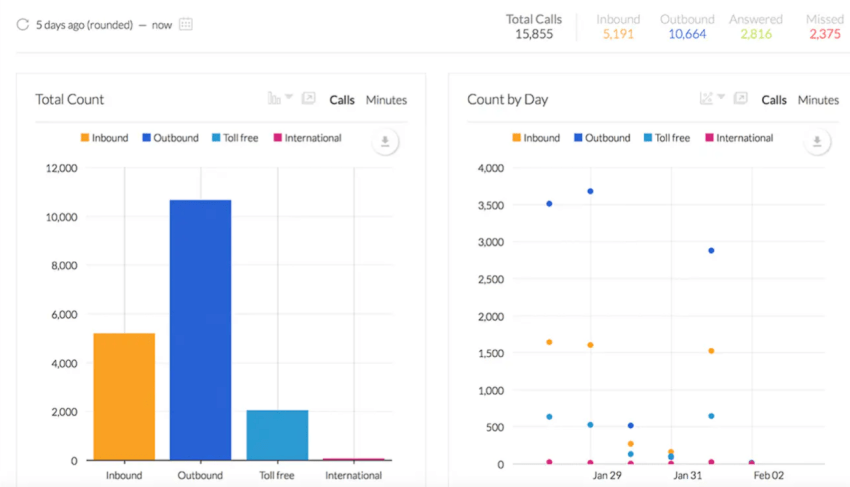
Look for CS solutions with these features:
- Real-time and historical reporting: You can track key call center metrics, including average handle time, first contact resolution rate, and customer satisfaction, to identify areas for improvement and measure success.
- Dashboards: These tools provide agents and supervisors with real-time insights into call volume, wait times, and agent performance, enabling proactive adjustments.
- Workforce management: You can forecast call volumes, schedule agents effectively, and identify peak times for staffing optimization.
Scalability and security
Your current needs are important, but you want to choose a CS solution that can adapt to your business’s growth. Many businesses, for example, will need to accommodate increased call volumes and diversified call needs as their business scales.
Make sure you consider the following:
- Cloud-based solutions: These offer long-term scalability, including the ability for employees to work remotely, while eliminating the need for an extensive hardware investment.
- Scalable plans: Some CS solutions are geared exclusively toward small businesses. Look for tools that offer pricing packages that can scale alongside your business or adapt to call centers.
- Data security: Data security priorities should include features like encryption, access controls, and compliance with relevant data privacy regulations.
Integrations
While many CS solutions integrate with diverse communication channels, contact centers should also look for solutions that offer additional integrations with third-party tools. These integrations can streamline data syncing and automate workflows across different platforms, significantly improving agent performance.
Consider tools that offer the following:
- Customer relationship management (CRM) integrations: Integrations with CRM software can provide agents with essential customer data to deliver personalized support.
- AI-powered integrations: Integrations to facilitate sentiment analysis, chatbots for basic inquiries, and speech recognition can deliver automated and streamlined data entry.
- Integration with your existing tech stack: Built-in integrations (or the options to integrate with API access) for your existing tech stack, including your virtual phone system, project management software, or social media management software, can be invaluable.
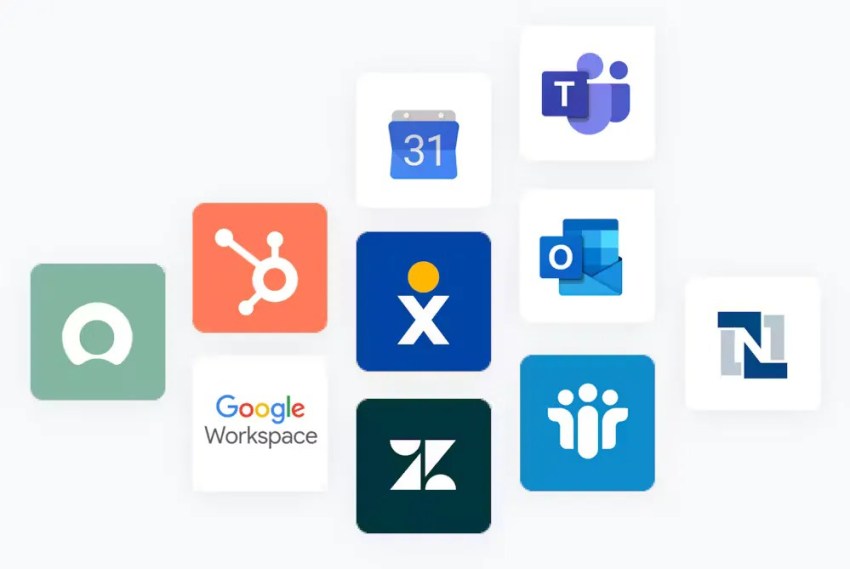
Where does your CX strategy stand with AI?
Take the AI Maturity assessment to get personalized recommendations on how to enhance your CX.
Ease of use and implementation
Any CS platform you choose should have an intuitive interface for all agents. This will reduce training requirements and speed up initial implementation and new employee onboarding.
You can evaluate each vendor’s implementation process and ongoing support to ensure a smooth transition and continued assistance as needed.
Nextiva: The Best CS Solution for Contact Centers
Call centers need strong, scalable customer support solutions that can handle diverse channels and high customer contact volumes.
You should consider your existing and projected future needs when shopping for a new CS solution.
Do you need more traditional touchpoints and support if you regularly have high call volume? Or are more digital touchpoints essential if you want to reduce call volume or have high website traffic?
You should consider your specific customer base, too; younger audiences are more likely to turn to online and self-service support options first, while older generations may still prefer more traditional methods as a first line of defense.
Brands and call centers seeking to unify their CS channels under a single platform should look at Nextiva’s Contact Center solutions.
Nextiva is a leading provider of reliable VoIP systems for contact centers. We also offer UCaaS and customer support features so your team can handle all support needs within a single dashboard. All solutions come with Nextiva’s intuitive interface, exceptional support, and high reliability.

The call center solution teams love.
Sales and support teams use Nextiva to deliver a better customer experience.

















 Customer Experience
Customer Experience 








